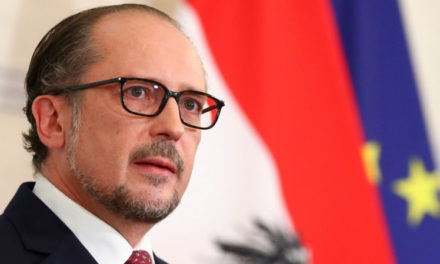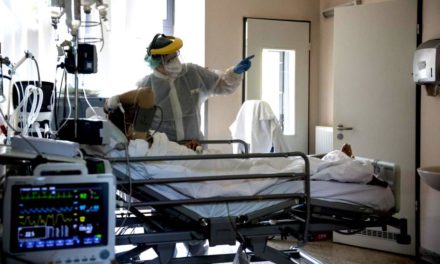A few days ago, the charitable institution called Die Tafeln (The Spread Table) turned to the public with a desperate request for help. The organization mainly distributes food donations from grocery stores, shopping centers and restaurants to those in need at its city locations. In the past, Tafeln's visitors were mainly homeless people, people living on social assistance and unregistered illegal immigrants. However, the situation seems to be changing now. More recently, the needy are no longer only from these groups, but increasingly from Germany's pensioners and families living on low wages.
Frank Hildebrandt, president of the Tafeln association in Schleswig-Holstein, speaks of an "extraordinary situation" as the number of people in need has doubled at several of their sites. However, donations have partially halved since the grocery stores calculate much more strictly in the meantime. The president of the organization reports frightening experiences:
Due to the huge inflation and the price explosion, "many people don't even have enough food anymore".
Of course, we are talking about a minority here, although it is an ever-growing minority. The majority of German citizens can still afford the ever-increasing food prices, but the overall decline in food purchases and shopping in general shows that the vast majority can now afford much less.
Private households bought about 4.4 percent less food in 2022.
No wonder, since
During 2022, food prices rose by more than 20 percent. Within this, milk, dairy products and eggs cost a fantastic 36 percent, grain products by 23 percent, meat by 19 percent and vegetables by 11 percent more than a year earlier.
By May 2023, food prices had once again risen by 15 percent, and the trend is unchanged. The demand for organic products decreased the most.
According to a survey, half of consumers will buy less organic products, and seven percent have completely stopped consuming these luxury products.
While food and energy prices soared, gross wages rose just 5.5 percent and already meager pensions rose 5.2 percent. Therefore
German consumers save not only on food.
More than half of the respondents went to the cinema and other entertainment venues less often, went on holiday less often and to cheaper places and spent less in restaurants and bars. Many people do not go on vacation at all and have completely stopped visiting entertainment venues.
Dark mood in the German economy
Citizens perceive the consequences of the green economic policy and especially the energy revolution not only as consumers.
The explosive increase in the number of insolvent companies is particularly ominous for the future.
Companies such as Galeria (formerly Kaufhof and Karstadt), Peek & Cloppenburg, Gerry Weber, as well as Görtz and Reno, which are well-known among Hungarian tourists, as well as the shoe retail chains, became insolvent this year, among other things, because the customer base especially on clothing save.
The shrinking of the market is also accompanied by the increase in the cost of the energy required to maintain shops and department stores, which led to the bankruptcy of many medium-sized and smaller businesses.
But it is not only trade that is crumbling under the burden of energy prices and inflation. So far in the first half of 2023, 8,400 companies have become insolvent, which is 16.2 percent more than a year ago. And the trend will continue and increase. According to the semi-annual report of the economic monitoring company Creditreform, "as the economic outlook remains gloomy, the number of insolvent companies will increase." The situation is exacerbated by the fact that the consumption climate is bad as a result of inflation, that is, turnover and profits are decreasing, while interest rates are rising, writes Creditreform's chief economist. Manufacturing, construction, automotive suppliers and retail companies are particularly at risk.
The advocacy group of retail companies expects the closure of around 8,000 units in this group alone this year.
The actors of the German economy look to the future in a dark mood, most economists expect the recession to continue. The Ifo economic opinion research institute reports a dramatic worsening of business sentiment. "Mainly, the weakness of industry threatens the German economy ," said Clemens Fuest, chief economist of the Ifo Institute. The outlook is increasingly negative in both the manufacturing industry, trade and construction, he added. " There is a high probability that the GDP will also decrease in the second quarter ," said Klaus Wohlrabe, head of the survey.
“In almost every industry, the outlook is bad, there is hardly anything to be hopeful about... Pessimism is especially high in industry. The reason is the extreme weakness of demand. Not only is there a lack of domestic demand, expectations for exports have also fallen."
The difficulties of German industry are the consequences of the policies of the current socialist-green-free-democratic government and its predecessors. The head of the association of family businesses openly states what is the basis of most entrepreneurs' concerns: "The biggest concern of family businesses today is that the German economic environment is not competitive. Most of our members say that today they would not build their business in Germany, but abroad." Then, referring to the great green transformation, he continued:
"My sense is that Germany's deindustrialization continues apace." Which exactly corresponds to the objective of the green elite and the government (decarbonization!)."
The wave of bankruptcies and declining industrial and commercial production will not remain without consequences for employment. So far this year, 125,000 jobs have been lost due to insolvency. In the summer, the number of unemployed usually decreases, but not now. There were 2.55 million people out of work in June, 11,000 more than in May and almost 200,000 more than a year ago.
Last night, the Constitutional Court granted an emergency request, with which a member of parliament of the CDU prevented the government from forcing the so-called heating revolution practically without a parliamentary debate. But the banning of gas and oil heating and forcing the heating of apartments under total state control will come anyway.
With its parliamentary majority, the government will enforce this new program of destroying private and state property, which will lead to further deterioration of the financial situation of German citizens, who are already cornered by recession and inflation.
It will be good if the volunteers of Die Tafeln are prepared for a hard winter.
Author: Krisztina Koenen / neokohn.hu
Cover image: tafel.de












